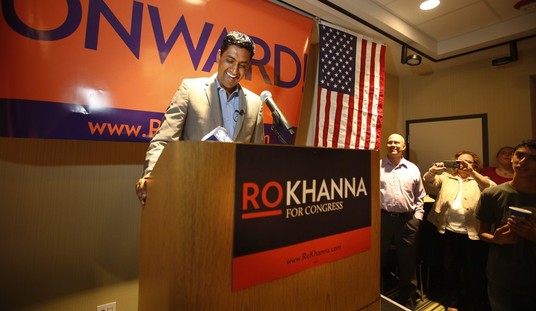More than a decade ago, California legalized marijuana used for “medicinal” purposes, leading to the establishment of pot clubs and setting off a confrontation with the federal government. Now they want to end the medical pretense and make cannabis flat-out legal for personal use. The Assembly will take AB390 under consideration, supported by those who see an economic benefit from bringing the industry out of the shadows. Critics see a whopping hypocrisy from the nanny-staters:
Smoke weed – help the state?
Marijuana would be sold and taxed openly in California to adults 21 and older if legislation proposed Monday is signed into law.
Assemblyman Tom Ammiano, D-San Francisco, said his bill could generate big bucks for a cash-starved state while freeing law enforcement agencies to focus on worse crimes.
“I think there’s a mentality throughout the state and the country that this isn’t the highest priority – and that maybe we should start to reassess,” he said.
Critics counter that it makes no sense for a Legislature so concerned about health that it has restricted use of trans fats in restaurants to legalize the smoking of a potentially harmful drug.
That does make for a strange conflict. California’s legislature may label trans fats more dangerous than marijuana to the public. Regulating one while deregulating the other seems very hypocritical — and calls into question whether the state has the competence to understand personal choices better than the people making them. Given this example, I’d say no.
Moving beyond that to the issue itself, California and other states will have to make some hard choices on law-enforcement policies as monies start running low in a deep recession. The Wall Street Journal makes the same point in a column today by the former presidents of Brazil, Mexico and Colombia about the war on drugs in general. They wonder whether selective enforcement and prevention might prove more effective:
In this spirit, we propose a paradigm shift in drug policies based on three guiding principles: Reduce the harm caused by drugs, decrease drug consumption through education, and aggressively combat organized crime. To translate this new paradigm into action we must start by changing the status of addicts from drug buyers in the illegal market to patients cared for by the public-health system.
We also propose the careful evaluation, from a public-health standpoint, of the possibility of decriminalizing the possession of cannabis for personal use. Cannabis is by far the most widely used drug in Latin America, and we acknowledge that its consumption has an adverse impact on health. But the available empirical evidence shows that the hazards caused by cannabis are similar to the harm caused by alcohol or tobacco.
If we want to effectively curb drug use, we should look to the campaign against tobacco consumption. The success of this campaign illustrates the effectiveness of prevention campaigns based on clear language and arguments consistent with individual experience. Likewise, statements by former addicts about the dangers of drugs will be far more compelling to current users than threats of repression or virtuous exhortations against drug use.
Such educational campaigns must be targeted at youth, by far the largest contingent of users and of those killed in the drug wars. The campaigns should also stress each person’s responsibility toward the rising violence and corruption associated with the narcotics trade. By treating consumption as a matter of public health, we will enable police to focus their efforts on the critical issue: the fight against organized crime.
This sounds like double-speak. Besides decriminalizing marijuana, which would actually remove the profit potential of the criminal gangs, one cannot fight organized crime without fighting the actual crimes they commit — and the people with whom they commit them. Imagine a world in which prostitution was illegal but the customers break no laws in procuring sex for money. Can anyone imagine successful prosecutions of the hookers and pimps if the system explicitly allowed johns to walk free? It’s absurd.
So is the notion that we need to set up a public-health system for addicts. I sympathize with the libertarian argument of personal choice, more so for marijuana than most other substances, but don’t sell me personal choice and then demand a publicly-funded support system for it. If we have to pay for the latter, then keep throwing the users in prison. The people need to carry the burden and costs of their own personal choices without making it everyone else’s problem, or else we’re back at the original rationale for the war on drugs.
California has other motives than personal choice. They see a multibillion-dollar industry that exists below the radar of taxation, thanks to its illicit status. Legalizing pot means allowing transactions to become above-board and eligible for sales and income tax. I wonder how much of that will evaporate, though, once weed gets legalized. It’s easy to grow almost anywhere, especially in California, and most users would probably start growing their own supply once the deterrent of law enforcement gets removed.
I keep meaning to schedule John Holowach for my show to discuss his film High: The True Tale of American Marijuana. I’ll try to get him soon.








Join the conversation as a VIP Member